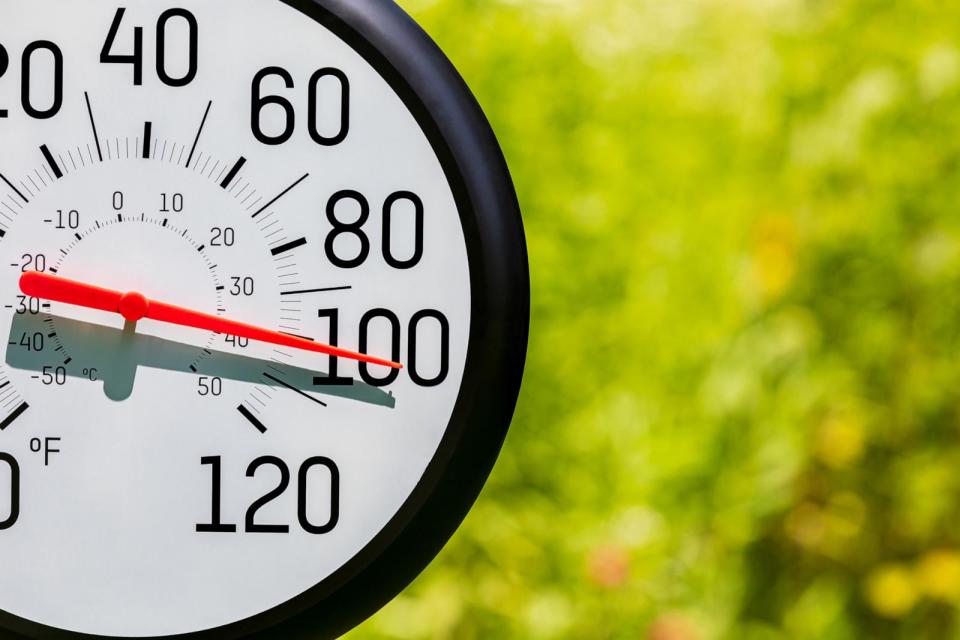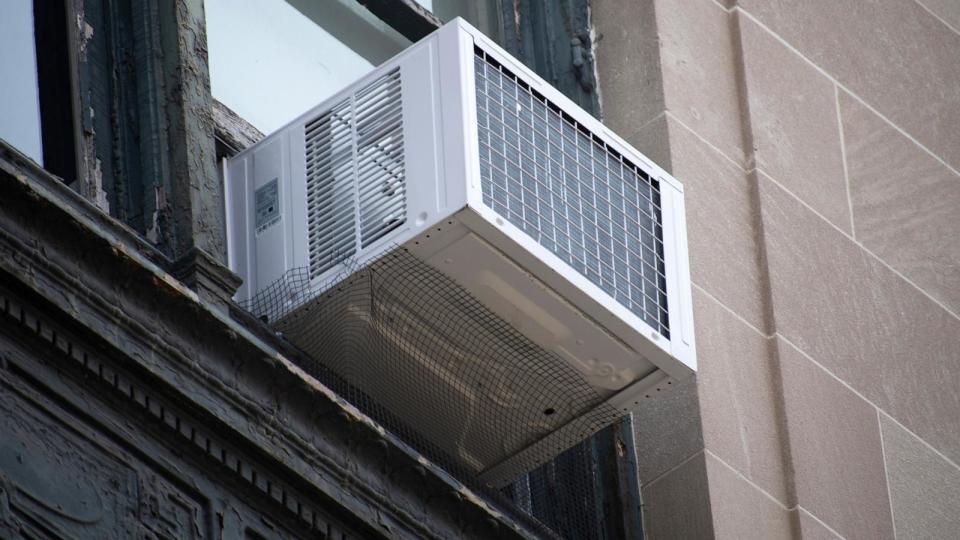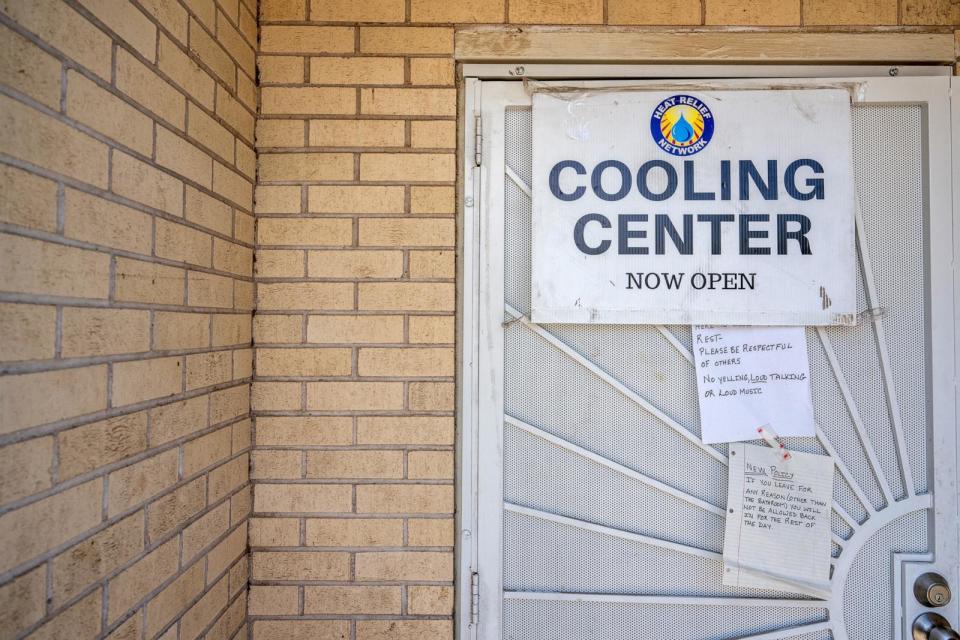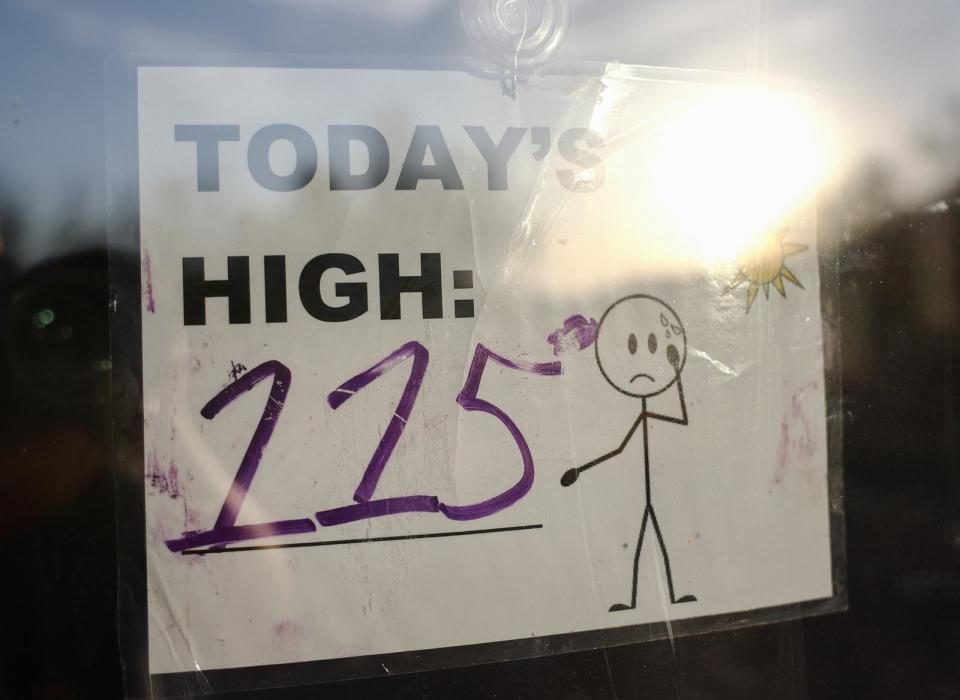Is air conditioning enough? Why extreme heat can still put you at risk
"The heat is coming for everybody," Andrew Dessler, a professor of atmospheric sciences at Texas A&M University, said as one of the season's earliest-onset heat waves scorches the United States.
As officials heed heat wave warnings across the country, forecasting what could become another hottest year on record, air conditioning units whirr and utility bills rise.

This week, dangerously high temperatures hit 14 states across the Midwest and Northeast, with New York City expecting a record-breaking, five-day heat wave with temperatures above 90 degrees, according to the National Weather Service.
MORE: Heat wave maps: How long the dangerous temperatures will last
While air conditioning can certainly mitigate the dangers of extreme heat, experts say the threat of heat-related illnesses and death is present if you're unable, even with AC, to maintain a cool enough room temperature to regulate your body's temperature.

"Many people who die of extreme heat die inside their homes," Jaime Madrigano, a public health researcher with Johns Hopkins University, told ABC News. "Many of those people are not adequately running air conditioning when they succumb to heat-related deaths."
In 2023, extreme heat was linked to over 11,000 deaths and approximately 120,000 emergency room visits in the U.S., according to the Centers for Disease Control and Prevention (CDC).
MORE: As sweltering heat approaches, experts share hot car safety tips
Madrigano is continuing a study that began last summer in New Orleans, Louisiana, funded by the National Institutes of Health, that recruits participants to take temperature and humidity measurements inside their home, to see what daily heat levels they're experiencing during the summer.
The researchers then use that data to analyze how those temperatures change throughout the day, as well as what health impacts related to sleep, mood and physical discomfort the participants are experiencing.

"Very blunt preliminary data can see that even with air conditioning, many people are not able to maintain what is a comfortable temperature in their home environment," Madrigano said, adding a fourth of the participants recorded inside temperatures well over 80 degrees Fahrenheit.
Some barriers to adequate air conditioning include poorly functioning units and financial constraints that make it difficult to pay utility bills, according to Madrigano.
New Orleans broke heat records in 2023, with over 10 excessive heat alerts issued by the National Weather Service (NWS). The unrelenting summer saw triple-digit temperatures, with humidity that made the climate feel like it was over 115 degrees Fahrenheit, according to the government agency.
"It's really important to recognize heat as a hazard," Dr. Leah Schinasi, an environmental and occupational epidemiologist at Drexel University, told ABC News.

Schinasi's work focuses on understanding the population health impacts of high ambient temperatures. She is currently leading a study analyzing the effect of indoor temperatures on mortality outcomes in older adults.
Heat-related illnesses, including heat exhaustion and heatstroke, occur when a person's body temperature rises faster than the body can cool itself, and can damage the brain and other vital organs, according to the CDC. Early symptoms can include dizziness, headaches, nausea, weakness and fatigue, according to the agency.
The public health agency further notes that older adults, the very young, and people with chronic diseases and mental illnesses are at the highest risk of heat illnesses. However, prolonged exposure to extreme heat, as well as strenuous activity in extreme temperatures, can be detrimental to anyone.
While there is no national standard regarding at what temperature an AC unit needs to be set to ensure safety during a heat wave, the air conditioner manufacturer Carrier Global recommends setting your air conditioner at 72 degrees Fahrenheit, which they say is "generally considered a comfortable indoor temperature for many people," and "strikes a good balance between comfort and energy efficiency."
When it comes to getting a good night's sleep during the summer's heat, the Cleveland Clinic recommends a cooler thermostat setting, between 60 and 67 degrees Fahrenheit.
MORE: Heat stroke vs. heat exhaustion: Extreme heat safety tips
"As we know, many lower-income households do not have adequate access to air conditioning," Schinasi said. "Even if they do have access, they're often unable to afford to use it as much as needed because of the enhanced energy costs that come with using air conditioning," Shinasi added, echoing Madrigano.

In May 2022, the U.S. Energy Information Administration (EIA) released results from the 2020 Residential Energy Consumption Survey, which found that 88% of American households use some method of air conditioning, whether it's central air or individual AC units. The survey also found that apartments were the housing type least likely to use AC equipment.
The financial burden of running air conditioning, however, is not considered in these figures, according to Madrigano. "Just because someone has air conditioning doesn't mean they're always running it, because they might be constrained due to really exorbitant utility bills or other financial constraints," she said.
The average monthly residential power bill in the U.S. is projected to rise to $173 in June, July and August, which marks a 3% increase from summer 2023, according to the EIA.
"There are two worlds you can live in. You can live in a world where we subsidize air conditioning for poor people, or we're simply going to normalize people suffering and high temperatures," Dessler told ABC News, also noting that historically hot cities that are only getting hotter points to a global reality.
"When you look at Phoenix, Arizona, you see a future that the rest of the country is going to have to deal with," Dessler said.
In July 2023, Phoenix endured a record-breaking streak of over a month with highs at or above 110 degrees Fahrenheit, according to the NWS.
"Phoenix is a living laboratory for environmental heat research," Ariane Middel, a professor in Arizona State University's Urban Climate Research Center, told ABC News. "The hot temperatures we frequently experience in summers in the Southwest will be matched by heat waves in other regions that are not used to the heat, historically."

One of Middel’s biggest concerns surrounding extreme heat is that lawmakers and citizens alike are not taking the threat seriously enough, as they might other climate-related perils.
"Heat is a silent killer. It's the deadliest weather-related killer in the U.S., but it doesn't leave a visible trace of destruction like a hurricane or tornado," Middel further noted, adding, "All heat-related deaths are preventable in theory, but it becomes more difficult in practice."
Is air conditioning enough? Why extreme heat can still put you at risk originally appeared on abcnews.go.com